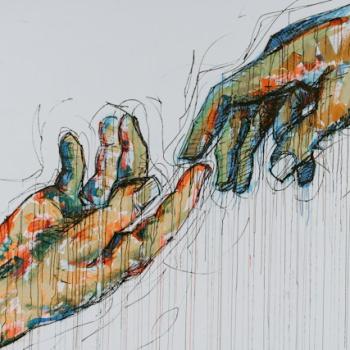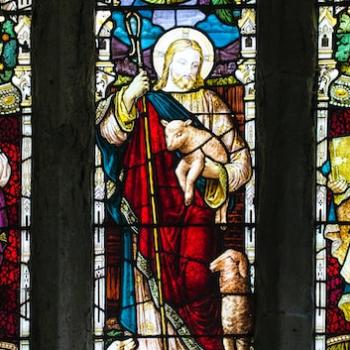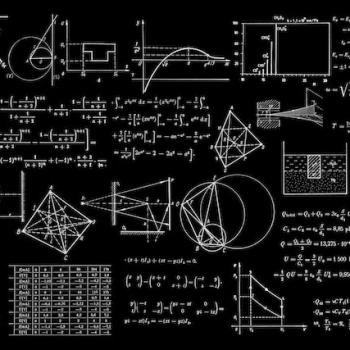
Last week, I asked what I think is one of the most important questions we need to grapple with. If faith doesn’t even out the bumps in the “turbulence” we experience in regular life, and it doesn’t buy us an express ticket to some sort of “first class” heaven when it’s all over, then what good is it? Why be a person of faith if it doesn’t lighten the load we carry right now or promise some sort pearly-gates-with-harp-music reward after the lights go out?
Spoiler Alert: This week’s gospel reading suggests a pretty good answer: “The child is not dead but asleep” (Mark 5: 39).
Say what? Let’s back up a bit and take a closer look.
I love, love, love this week’s gospel reading because it’s an M.C. Escher lithograph. It folds in on itself and twists and turns and snakes its way around in surprising ways. Its staircases lead us up one path but end up in completely new territory.
One of the staircases in this week’s story is about Jairus, a big time muckety-muck in the synagogue, who tells Jesus that his daughter is on her deathbed and asks him to heal her. But alas, he gets held up by a woman who has been hemorrhaging for twelve years and seeks a cure. The poor woman had been suffering with a twelve-year menstrual flow that not only made her life physically challenging but had to make her social and communal life non-existent.
What Cleanliness Is Next To
The Jewish people of Jesus’ time and long before placed a great deal of emphasis on “cleanliness.” From the very beginning of the Old Testament, numerous laws and purity codes insisted that contamination be avoided in all significant activities: eating, worshiping, and procreating. There were long lists of foods that were “clean” and “unclean.” Skin ailments like leprosy, being in the presence of a corpse, menstruation, seminal fluid, and the act of childbirth itself were all considered “unclean.” And those who were “unclean” were forbidden to come in close contact or, God forbid, actually touch someone who is “clean.” Like the most virulent strain of a deadly virus, a state of physical and moral “uncleanliness” for the Jews of Jesus’ time could spread like lightening.
So, Jesus is asked to go to the home of a Jewish rock star, an esteemed member of the religious hierarchy, but is waylaid by a woman who not only approaches him but actually touches his garment, an act that would put him in a state of “uncleanliness” as well. The plot thickens.
I believe this is the only healing miracle in the gospels where Jesus isn’t in the driver’s seat. Sure, there are many where Jesus is sought out for help, but in each of these, Jesus takes control of the exchange and initiates the first step in the healing process. He touches someone or says, “Your faith has healed you,” or in some other way gets the ball rolling. But in this story, Jesus isn’t even aware that he’s performing a miracle! He doesn’t make a conscious decision to heal her; at the time of her healing, he isn’t even aware of her presence.
This may very well be my favorite miracle story because of its M. C. Escher “staircase logic.” If the person who performs the miracle isn’t even aware that it’s about to happen, then what could that mean? To me, it means that everything we need – call it salvation, redemption, rebirth, or just plain ol’ healing – is already present. It’s already here. It’s already available. God isn’t somewhere out there in the distance, just hanging out until he’s ready to swoop in clean up the mess. God is right here, right now. If Jesus himself can became “unclean” by being touched by the bleeding woman, then all those things we may consider “unclean,” are actually staircases that lead to the sacred.
It’s just that we usually don’t recognize this. Jesus rocked his world back then and ours today because he helped us see differently. I love that this God-right-here truth comes packaged in layers of “uncleanliness.” For me, the message is clear – holiness isn’t about perfectly performed ritual practices or the repetition of belief statements. It’s about the blood and the wind, the dirt and the sweat, the tears and the laughter. It’s about our real, imperfect, sometimes amusing, often insufferable, day-to-day existence as regular ol’ humans. The healing we long for has been here all along. Life already provides the wholeness we seek. The staircase that appears to go nowhere in reality goes somewhere pretty amazing.
Really, Why Bother?
Let’s circle back to our original question. If faith doesn’t lighten the load this side of death or provide some celestial, bleached-white, angel-studded hereafter, then what good is it? Jairus’ daughter brings this into focus.
The hemorrhaging woman is healed, but while that is being sorted out, Jesus gets word that Jairus’ daughter has died. Some say that Jesus’ shouldn’t waste his time since it’s clearly a lost cause, but he proceeds to her bedside, nonetheless. Jesus says, “The child is not dead but asleep.” The staircase that seemed to hit a dead end somehow opens into an entirely new vista.
Death may well just be going to back to “sleep” in the embrace of the divine wholeness from which we came. Regular ol’ life is already suffused with the divine. That means we are united for all eternity with our God. Perhaps our individual lives are little waves that come from the depths of the ocean to crest and fall in our turn and then return to our watery home.
Beyond Pearly Gates
But wow, how cool is it to be part of the ocean? How amazing it is that 14 billion years of unfolding led to our little time to splash upon the sand? How miraculous is it that what we do with our little “sand splashing” can have a “butterfly effect” on the next 14 billion years of existence? Out little staircase may seem to go nowhere, but really, it’s headed to something spectacular, something beyond comprehension, something words are unable to describe. Faith, for me, is this way of “seeing.” Good stuff, huh?











